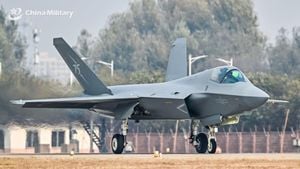Myanmar finds itself ensnared in the throes of conflict and political turmoil following the military coup of February 2021, which ousted the democratically elected government led by Aung San Suu Kyi. The junta's swift consolidation of power has sparked widespread resistance, leading to brutal crackdowns on dissent, and pushing numerous ethnic armed groups and newly formed defense forces to rise against the military regime.
Since the coup, the situation has escalated, with the military reportedly suffering significant territorial losses to various ethnic minority armed groups. This includes the Ta'ang National Liberation Army (TNLA) and the Arakan Army (AA), which have managed to secure strategic territories and set up defenses against the military's aggressive campaigns. Journalists have also faced severe repression, risking their lives to document the human rights abuses perpetrated by the military government. At least five journalists have been killed, and many others have been detained for reporting the truth. Despite these dangers, many remain steadfast, continuing their work from both within and outside Myanmar.
Recent events have underscored the perilous conditions for civilians and the dire situation for ethnic minorities battling for their rights and safety. Just recently, 11 civilians were killed during a military airstrike on a tea shop located in Naungcho, Northern Shan State, where those gathered were merely enjoying time with friends. The junta's actions reflect its broader strategy of targeting civilian communities as part of its efforts to suppress opposition without regard for human cost.
Religious freedom has deteriorated significantly as well. Various ethnic and religious minorities, including Christians, face persecution and violence from the military, which has attacked houses of worship and community leaders. Reports indicate the military’s assault on sacred sites, with over 220 churches destroyed since 2021. The U.S. Commission on International Religious Freedom has identified alarming patterns of increased violence against Christians, particularly those of the Chin ethnic group, which has asserted its independence through the establishment of the “Chinland” constitution, pledging secular governance.
Adding to the chaos, the military regime has been accused of using ethnic divisions to its advantage, prompting communities historically aligned with the junta to now demand military action against minority groups. This strategy seeks to pit one group against another, as seen with the growing tensions between the Arakan Army and the Rohingya minority, with armed incursions and allegations of violence arising from both sides.
The international community's response to this humanitarian crisis has been criticized as insufficient. Human rights organizations and governments have urged for more decisive actions, yet critics argue the lack of substantial pressure on the junta has allowed its brutal tactics to go largely unchecked. This raises the question of how long Myanmar can endure this façade of stability maintained through oppression and military might.
The Natinal Unity Government (NUG), formed by overthrown lawmakers and activists, professes to represent democratic values and promote unity among ethnic groups. Still, skepticism lingers among minority communities who feel the NUG, dominated by the Bamar ethnic group, fails to fully represent their interests. The Bamar People's Liberation Army (BPLA) seeks to carve out its unique identity amid this fragmented resistance, emphasizing its goal for full representation of the Bamar ethnicity and collaborating with various groups to wrest power from the junta.
Military forces have employed airstrikes and artillery bombardments against resistance groups, utilizing aerial superiority to crush defiance even as they cede control of territory. This strategy, filled with human costs and loss of civilian life, has not yielded the intended outcomes. Instead, it has intensified local resentment and prompted communities to bolster resistance efforts.
So, as the junta grapples with mounting pressure from armed groups and increasing international scrutiny, many wonder what prospect lies ahead for Myanmar. The land is rife with conflict, and ethnic battles intertwine with political struggles as the fabric of society is testily woven together amid pervasive violence and resilience.
The situation, grim as it is, reflects the enduring spirit of those who continue to fight for justice, democracy, and peace. While the military makes its moves, the question remains: Are the people of Myanmar ready to reclaim their future, or does the shadow of the junta loom too heavily over the nation?



